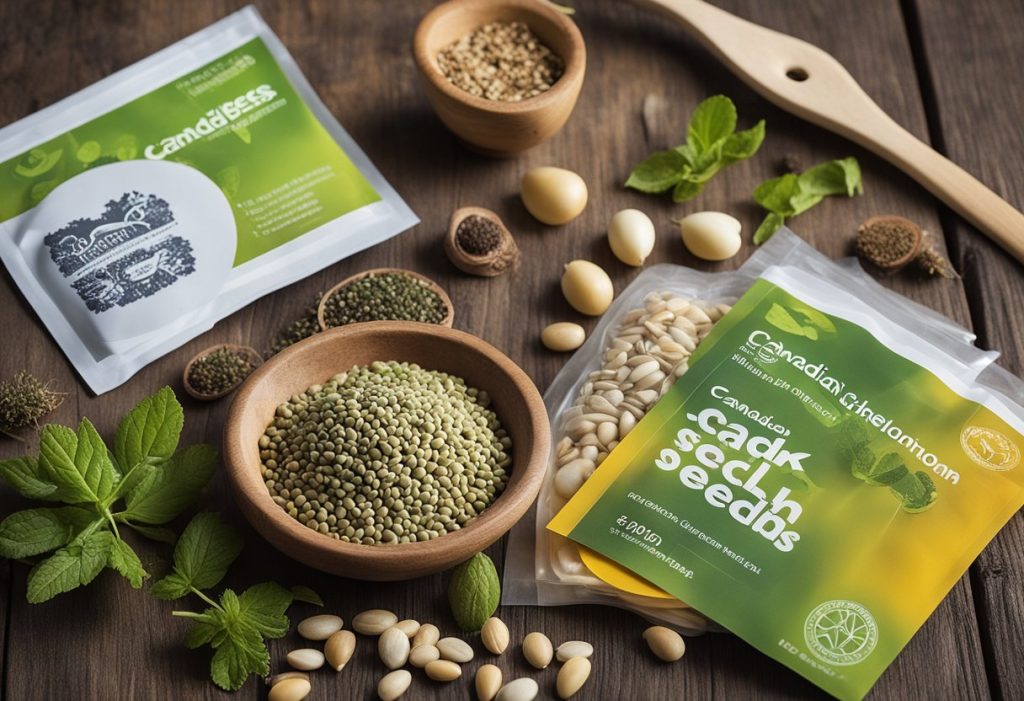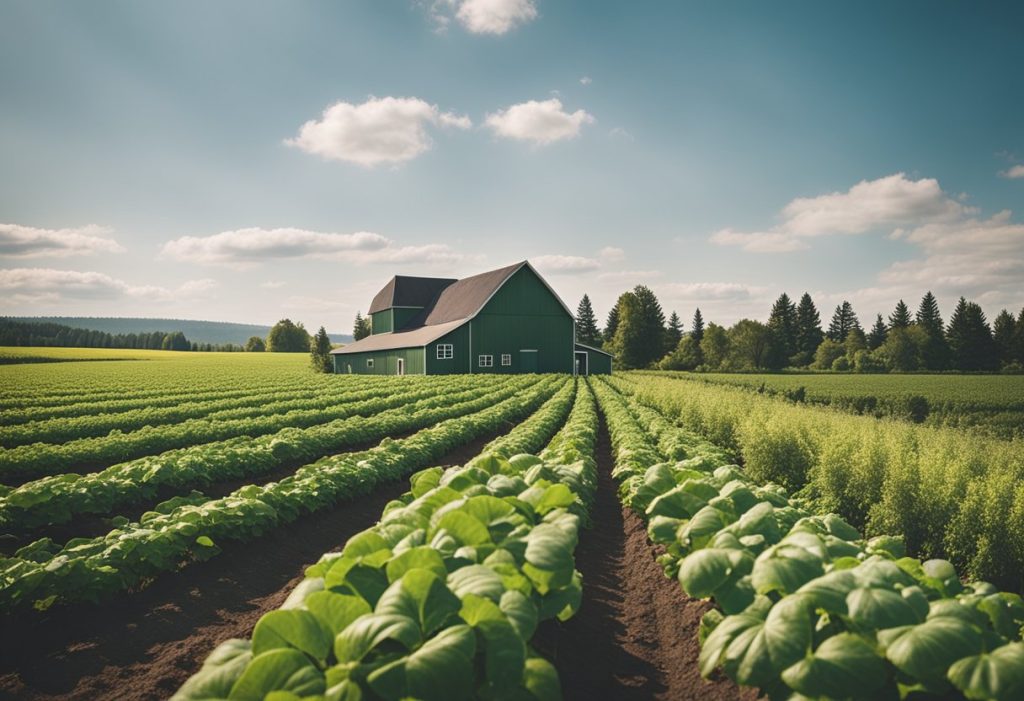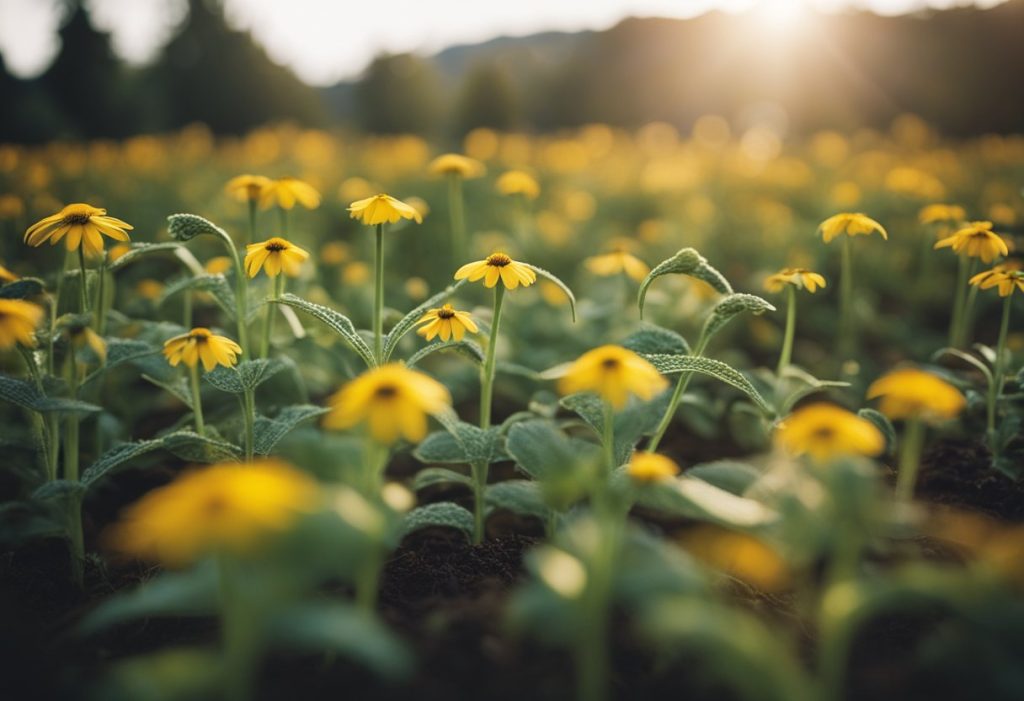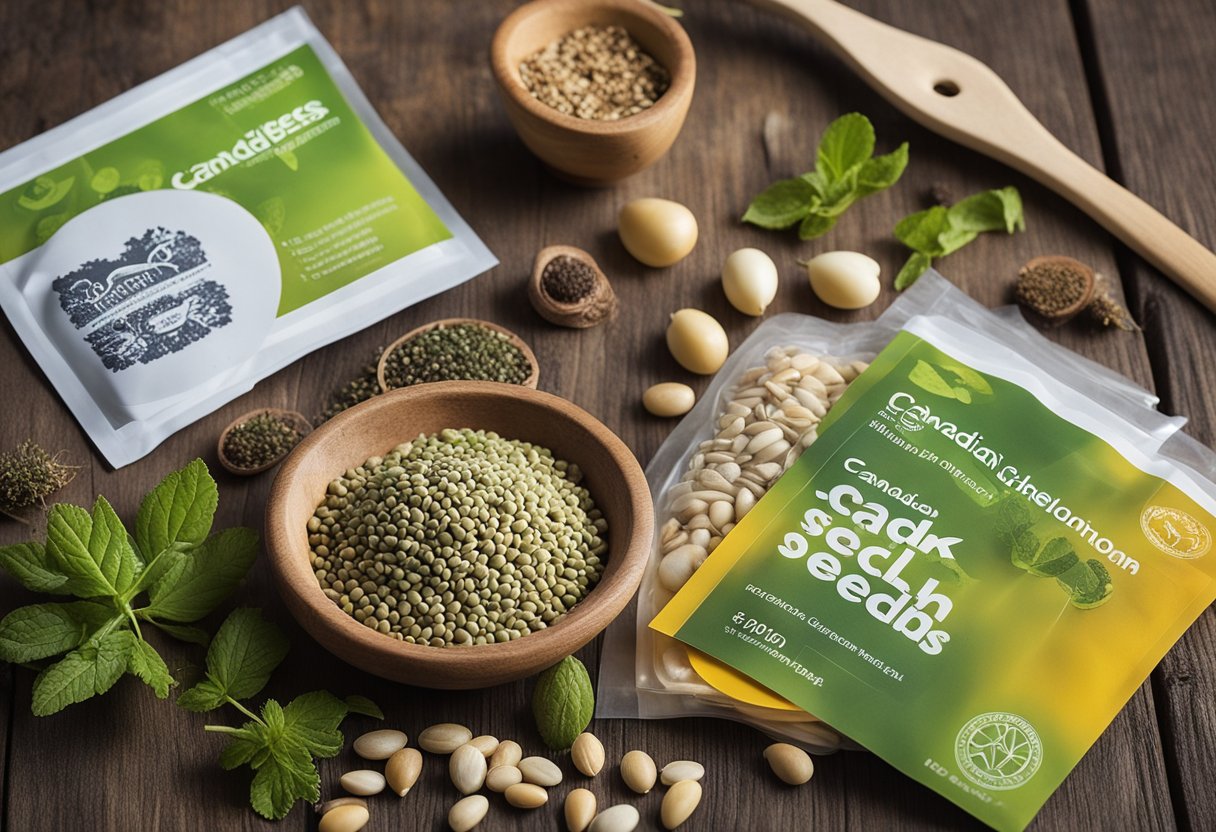Heirloom seeds have captured the hearts of Canadian gardeners and farmers alike, offering a unique and nostalgic connection to our agricultural past. These seeds, often passed down through generations, are open-pollinated, meaning they can naturally reproduce and remain genetically diverse. Canadians admire heirloom seeds not only for their historical significance but also for their role in promoting sustainable agriculture and biodiversity.

Canada’s vast landscape and unique growing conditions provide a perfect environment for enthusiasts to explore and cultivate a variety of heirloom plants. From tasty heirloom tomatoes, vibrant flowers, and nutritious ancient grains, gardeners can enjoy the different flavours and textures these seeds bring, allowing for a more personal and meaningful connection to their gardens and farms. Regardless of your geographical location, heirloom seeds provide an opportunity to dive into Canada’s rich agricultural history and support a more sustainable farming future.
Key Takeaways
- Heirloom seeds offer Canadians a connection to their agricultural history and promote biodiversity.
- Gardeners and farmers can enjoy the benefits of open-pollinated plants, providing unique flavours and textures.
- Growing heirloom seeds contributes to sustainable agriculture across Canada’s diverse landscapes.
History of Heirloom Seeds in Canada
As a gardening enthusiast, you may have come across the term heirloom seeds. These seeds have a rich history in Canada, and their cultivation can be traced back to the country’s earliest farmers. Heirloom seeds, unlike hybrid seeds, date back many generations, often carrying a legacy of family seed-saving traditions and cherished cultural connections to their places of origin.
In 1984, a group of about two hundred farmers and gardeners from across Canada realized that many heirloom plant varieties were no longer being offered for sale in commercial seed catalogues ^1^. These passionate individuals came together to form a community dedicated to preserving heritage seeds, subsequently leading to the birth of heirloom seed organizations in the country.
Heirloom seeds are often open-pollinated, which means that they can naturally cross-pollinate and breed true to their parent plants. This unique characteristic enables you to save seeds from your heirloom vegetables and replant them the following year, ensuring a continuous cycle of growth and the preservation of genetic diversity in your garden.
As a Canadian homesteader or gardener, you can benefit from the wide variety of heirloom seed suppliers and organizations that have emerged over the years. For instance, Heritage Harvest Seed has been providing open-pollinated, non-hybrid, non-GMO, and untreated heirloom seeds for almost 20 years, specializing in rare and endangered varieties.
Heirloom vegetable seeds are often the go-to choice for many gardeners, thanks to their unique flavours and enticing colours. You can indulge yourself in the treasures of your own garden by cultivating these heirloom varieties, passed down from generation to generation. Reap the benefits of generations of family seed-saving wisdom and connection to the land, while you nurture your very own heirloom vegetable garden.
So, as you plan your garden this season, remember that by choosing to grow heirloom seeds, you are not only safeguarding a piece of Canadian agricultural history, but you are also actively participating in a tradition of seed saving that sustains the genetic diversity of our food system. Embrace the rich world of heirloom seeds and contribute to the continued preservation of Canada’s garden heritage for generations to come.
Sourcing Heirloom Seeds
As a gardening enthusiast, you may be searching for heirloom seeds to grow in your Canadian garden. Heirloom seeds are often preferred for their open-pollination, non-GMO, and untreated qualities. Sourcing these seeds from reputable suppliers is essential for the success of your gardening endeavours.
Canadian Seed Suppliers
There are several Canadian seed suppliers that specialize in heirloom and organic seeds. One popular option is Heritage Harvest Seed, which has been offering a diverse collection of heirloom vegetables, flowers, herbs, and ancient grains for almost 20 years. They pride themselves on their rare and endangered varieties.
McKenzie Seeds and West Coast Seeds are other notable seed companies in Canada, offering a wide range of organic, heirloom, and non-GMO seeds for your gardening needs.
If you’re interested in sourcing seeds from smaller, local suppliers, you may find Annapolis Seeds, Revival Seeds, and Stems Flower Farm to be excellent choices. These companies focus on providing heirloom and open-pollinated seeds, ensuring the sustainability and preservation of these valuable plant varieties.
When ordering from Canadian seed suppliers, keep in mind that shipping rates may vary. Some companies, like The Seed Company, offer free shipping on orders over a certain amount. Be sure to check the shipping policies of each supplier, as many use Canada Post for their deliveries, which may impact the delivery time and cost to your location.
In conclusion, always select heirloom seeds from reputable and trusted Canadian suppliers, ensuring the quality and reliability of your seeds. Good luck with your gardening endeavour, and enjoy the beautiful and bountiful harvest from your heirloom seeds!
Growing Heirloom Seeds
Gardening with Heirlooms
Growing heirloom seeds in your Canadian garden can be a rewarding and enjoyable experience. Heirloom seeds are often non-GMO, untreated, and free of chemicals or pesticides, making them a sustainable option for gardeners who want to grow a diverse variety of flowers, herbs, and vegetables.
When planning your heirloom garden, consider your garden’s zone and the specific needs of heirloom varieties you choose. For example, Nova Scotia’s Annapolis Valley offers unique conditions that could affect the growth of your heirloom plants. Hardy heirloom varieties are ideal, as they are more likely to thrive in various climate conditions and can be adapted to your specific garden zone.
To start, it’s essential to choose high-quality heirloom seeds from reputable sources. Consider local suppliers like Heritage Harvest Seed in Canada, which offers over 800 heirloom varieties of vegetables, flowers, herbs, and ancient grains. Other reputable options can include Walkerland’s Canadian Heirloom & Organic Seed Suppliers and Brightbush Farm for their unique selection of seeds grown in Alberta, Canada.
Once you have your seeds, you should dedicate a specific area to your heirloom plants, as they may require different care than conventional plants. For example, some heirloom flowers and vegetable seeds may benefit from being started in a greenhouse before transplanting them outdoors, ensuring adequate warmth and protection from extreme weather conditions.
When it comes to planting, it’s essential to pay attention to the distinctive needs of each heirloom variety. Some flowers, herbs, and vegetables may prefer full sun, while others require partial shade. Proper spacing is also crucial, as it will allow your heirloom plants to grow and thrive without competing for nutrients.
As your heirloom plants grow, be mindful of potential pests and diseases. Opt for natural or organic methods of pest control to maintain your overall garden’s sustainability. Regular pruning and proper plant care will also help prevent diseases from spreading.
Seed saving is an integral part of gardening with heirloom seeds. By collecting seeds from your healthiest plants, you ensure the preservation of these unique, diverse seed varieties for future generations. It also helps promote a sustainable gardening practice.
Remember, as a gardener, you play a crucial role in preserving heirloom varieties and contributing to a more sustainable environment. By following these simple tips, you’ll be well on your way to enjoying a thriving, diverse heirloom garden in Canada.
Geographical Considerations

When deciding to grow heirloom seeds in Canada, you must consider geographical factors and climate conditions. Canada’s vast size and wide range of hardiness zones has an impact on which plants thrive in certain areas. This breakdown will guide you through heirloom seed selections according to regional conditions and local advantages.
Growing Heirlooms Across Canada
In the Maritimes, you will find that the Annapolis Valley in Nova Scotia is a prime location for growing heirloom plants due to its fertile soils and mild climate. The neighbouring provinces of New Brunswick and Newfoundland also offer excellent opportunities to grow various heirlooms, each adapted to the region’s hardiness zone.
Moving on to Quebec, Montreal’s rich and diverse gardening community embraces heirloom varieties. Since Quebec experiences a broader hardiness zone range, you will have the opportunity to grow many heirlooms suited to both cooler and warmer temperatures.
Ontario boasts a mix of cities and rural areas, offering options to grow heirlooms depending on your location within the province. Southern Ontario enjoys warmer hardiness zones that are conducive to a variety of heirloom plants. In contrast, Northern Ontario’s colder zones may require more cold-hardy heirloom varieties.
Considering the Prairies, Alberta showcases a wide range of hardiness zones encompassing cold temperature extremes as well as milder regions. Carefully select heirloom seeds adapted to the specific zone and soils for the best results in Alberta’s gardens.
Remember, growing heirloom seeds in Canada can be a rewarding experience, providing a connection to the region’s horticultural heritage alongside the benefits of sustainability and biodiversity. By choosing the appropriate heirloom seeds for your specific hardiness zone and geographical location, you will ensure a successful and bountiful garden.
The Role of Heirloom Seeds in Sustainable Agriculture

You may be wondering what the fuss is about heirloom seeds these days. Heirloom seeds are essentially varieties of plants that have been passed down through generations, often for over 50 years, and are open-pollinated. They are cherished for their reliability, unique flavours, and preservation of plant diversity. The use of these seeds plays an important role in sustainable agriculture, especially in the realms of organic production.
Flavourful and nutritious delights
When you opt for organic heirloom vegetables and flowers, you’re choosing vibrant colours, delightful flavours, and nutrition-packed produce. Heirloom seeds tend to produce plants with a wider range of nutrients compared to their hybrid counterparts. This not only benefits your health, but it also enhances the taste buds by offering a diverse culinary experience.
Sustainable farming practices
By incorporating heirloom seeds in your organic garden, you’re supporting a more sustainable and environmentally friendly approach to agriculture. Open-pollinated heirloom plants rely on natural processes like wind, insects, and birds for pollination, which in turn sustains local ecosystems. This encourages biodiversity and promotes a harmonious relationship between your garden and the surrounding environment.
Reliable cultivation and adaptability
A noteworthy feature of heirloom seeds is their adaptability, making them a reliable choice for organic production. With generations of cultivation under their belt, these seeds have evolved to withstand the challenges of local climates and pests. Adaptable nature makes heirloom seeds a valuable asset for small-scale farmers and gardeners alike.
Preserving plant diversity
As commercial agriculture continues to dominate the landscape, the importance of conserving heirloom seeds becomes even more critical. By choosing heirloom varieties, you’re not only adding unique beauty to your garden but also helping to maintain the genetic diversity of plants. This diversity is crucial for future food security and preserving our planet’s natural heritage.
In conclusion, incorporating heirloom seeds into your organic garden is a step towards a more sustainable and diverse agricultural future. By growing these unique and reliable plants, you’re not only reaping the benefits of their flavour and health qualities but also playing an active part in preserving plant diversity for generations to come. So, the next time you’re planning your garden, why not make room for some heirloom seeds and experience the difference for yourself?
Frequently Asked Questions
Where can I find rare heirloom seeds in Canada?
You can find rare heirloom seeds at Heritage Harvest Seed, which offers over 800 varieties of open-pollinated, non-hybrid, non-GMO, untreated, and natural heirloom seeds. They specialize in rare and endangered heirloom varieties of vegetables, flowers, herbs, and ancient grains.
What are the top Canadian heirloom vegetable seed companies?
Some of the top Canadian heirloom vegetable seed companies include Heirloom Seeds Canada based in Montreal, McKenzie Seeds, and Rainbow Seeds. These companies focus on providing high-quality and diverse heirloom seeds for your garden.
Which are the best organic seed catalogues in Canada?
While there isn’t a definitive ranking of the best organic seed catalogues in Canada, you can try browsing the online catalogues of Heirloom Seeds Canada and Rainbow Seeds. They both offer a wide range of heirloom seeds, many of which are grown using organic practices.
Where can I purchase heirloom seeds in British Columbia?
You can purchase heirloom seeds online and have them shipped to British Columbia from companies like Rainbow Seeds and Heritage Harvest Seed. Make sure to check shipping policies and select a company that suits your needs.
Are there heirloom seed suppliers in Nova Scotia?
There may be local heirloom seed suppliers in Nova Scotia, but ordering online through Canadian companies like Heirloom Seeds Canada or Heritage Harvest Seed is another option. They offer a wide range of heirloom seeds and can ship to various locations in Canada.
How can I differentiate heirloom seeds from others?
Heirloom seeds are open-pollinated, meaning they reproduce true-to-type from seeds, allowing you to save seeds from each generation. The plants have a uniform appearance and stable traits. Heirloom seeds are not a product of genetic enhancement, which differentiates them from genetically modified or hybrid seeds. Make sure to carefully read the seed packets or product descriptions to ensure you are purchasing heirloom seeds.
